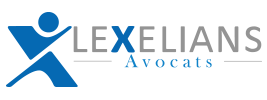Recent reforms and new challenges for condominiums: The rise of digitalization and financial forecasting
Condominium management in France is changing rapidly in 2024, with the introduction of new regulations aimed at modernizing, digitizing and better anticipating building maintenance needs. These reforms have an impact on managing agents and co-owners alike, imposing new obligations and paving the way for more transparent, proactive management. Here's an overview of the main changes.
1. Digitization of notification procedures
One of the major changes introduced by the reform of April 9, 2024 concerns electronic notification of co-owners. From now on, notices of general meetings and formal notices will be sent electronically by default. Previously, such mailings required the explicit consent of the recipient, but this is no longer the case. Co-owners who wish to receive their documents by post must make a specific request to their property manager.
This digitalization offers several advantages:
- Speed: documents reach recipients instantly, facilitating management and decision-making.
- Economy: Reduced postage costs for trade unions.
- Greater transparency: Co-owners have more direct access to information via online platforms, simplifying their involvement in building management.
However, it is the responsibility of the managing agents to clearly inform co-owners of the options available, and to maintain a postal communication channel for those who prefer it.
2. Contingency fund and maintenance booklet: towards mandatory financial forecasting
With the new regulations, the contingency fund and the maintenance logbook have become essential elements of condominium management. While the works fund was already mandatory for large condominiums (over 10 lots), its scope has been reinforced and extended to other types of condominiums.
The maintenance logbook must now include a detailed history of past repairs, inspections carried out and upcoming work. This tool makes it easier to anticipate expenses, thus avoiding surprises linked to costly unplanned renovations. The contingency fund, meanwhile, is intended to cover these future costs by establishing a regular contribution for all co-owners.
The new requirements include :
- A mandatory study of contingency fund requirements.
- A multi-year works plan (PPT), to be voted on at the general meeting. This plan covers a ten-year period and identifies the work to be carried out to maintain the building in good condition, particularly in terms of energy performance.
3. Impact on condominium governance
These reforms are also changing the way decisions are made within condominiums. General meetings must now focus on strategic decisions such as voting on works and fund management. The responsibilities of managing agents have been reinforced, particularly in terms of communication and transparency. They must not only inform co-owners of upcoming work, but also help them find financial solutions such as theEco-PTZ or grants like MaPrimeRénov' Copropriété for energy renovation projects .
4. The opportunities offered by these reforms
For co-owners, these changes represent an opportunity to optimize the financial management of their building, notably through better planning of works and reduced energy costs. The emphasis placed on anticipating expenditure avoids unexpected calls for funds, while at the same time enhancing the value of property assets through ongoing improvements.
For property managers, these reforms represent a challenge in terms of day-to-day management, but also an opportunity to improve the quality of services provided. The integration of technology into building management, via online tools or dedicated applications, enables more efficient and responsive management, in line with the expectations of modern condominium owners.
Conclusion: towards more sustainable and transparent co-ownership
The 2024 reforms are profoundly transforming the condominium management landscape in France. The digitization of exchanges and the introduction of a solid financial framework, with the contingency fund and maintenance book, are enabling more structured and anticipated building management. These changes aim to make condominiums more resilient in the face of environmental and financial challenges, while strengthening transparency and communication between the various players.
These new obligations, though restrictive, promise in the long term to enhance the value of assets and encourage more active participation by co-owners in the management of their building. However, syndicates will have to adapt quickly to meet these new expectations and responsibilities.

